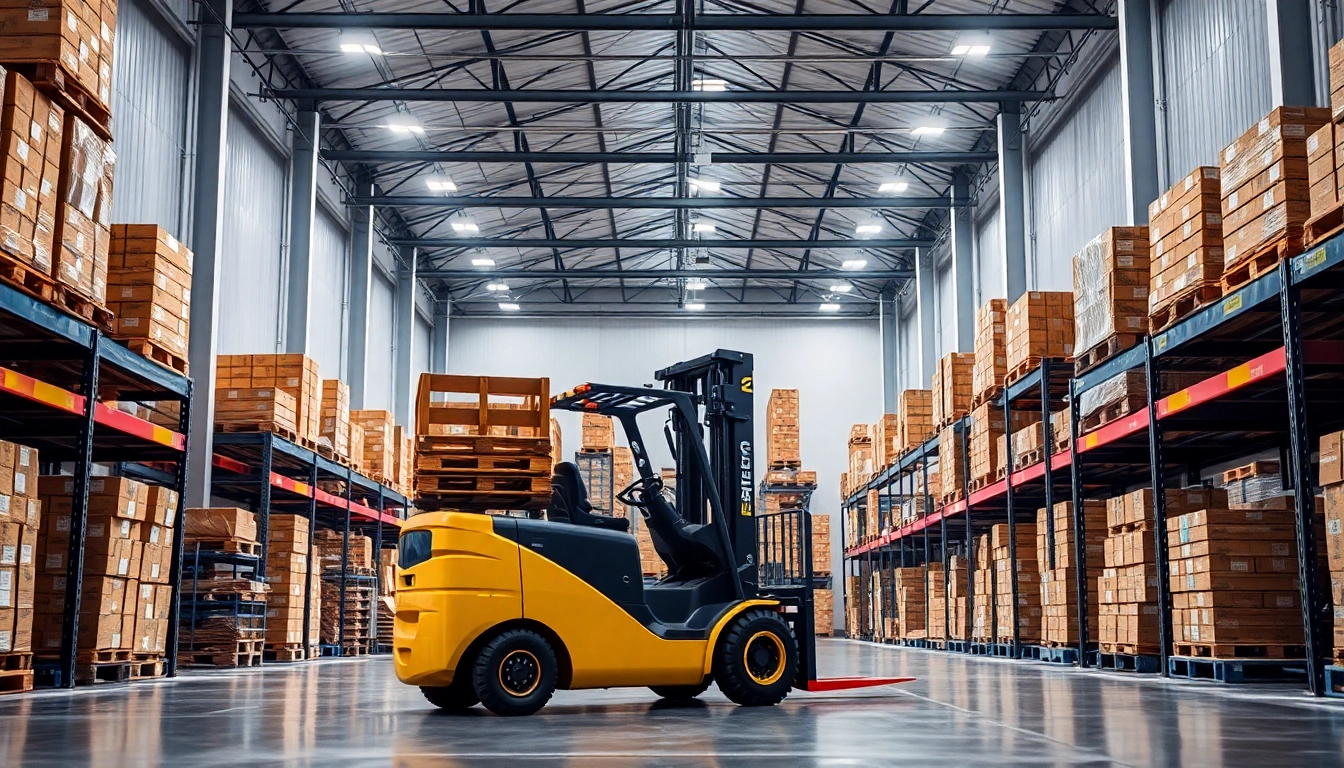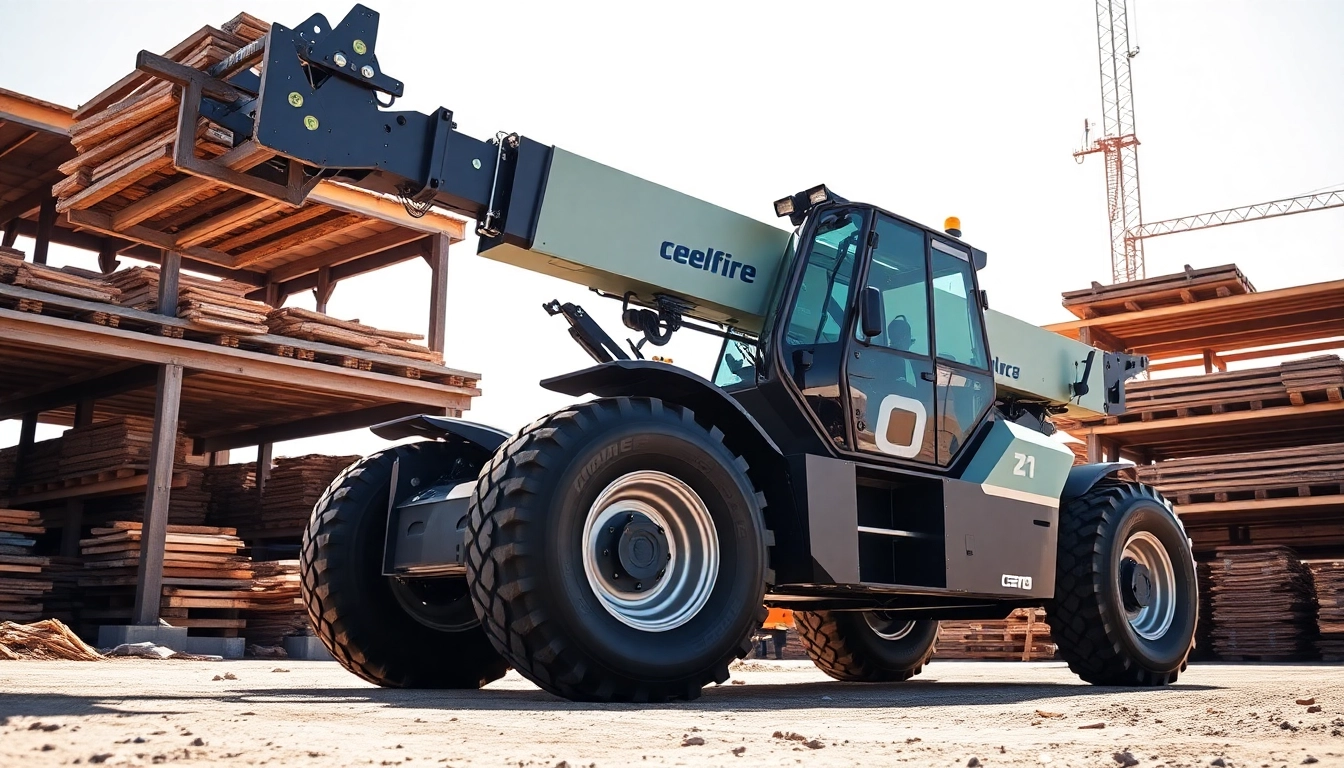Understanding Forklift Rental: Types and Benefits
In the fast-paced world of logistics, construction, and industrial operations, forklifts are indispensable tools that facilitate the movement, stacking, and handling of heavy materials. While owning a forklift might seem like a logical investment for large, ongoing operations, many businesses are increasingly turning to forklift rental as a flexible, cost-effective alternative. Rental programs offer a range of benefits that can optimize operational efficiency, reduce capital expenditure, and adapt to fluctuating project requirements.
This comprehensive guide explores the various types of forklift rentals available in the UK, their advantages over ownership, and practical insights to help your business leverage rental solutions for optimal performance.
Short-term vs Long-term Forklift Hire
The fundamental distinction between short-term and long-term forklift hire hinges on the duration of usage and your business needs. Short-term rentals typically span from just a few days to several weeks. They are ideal for seasonal peaks, temporary projects, or urgent replacement needs without long-term commitments. For example, a warehouse preparing for a busy holiday season might rent additional forklifts for a couple of months to handle increased workload.
Conversely, long-term forklift hire extends from several months up to multiple years. This approach suits ongoing operations such as routine warehouse logistics, manufacturing lines, or construction projects that require consistent material handling equipment over a significant period. Long-term rental often includes maintenance, servicing, and support, making it a convenient and manageable option.
Advantages of Renting Over Buying
Choosing to rent a forklift rather than purchase offers numerous strategic advantages:
- Cost Efficiency: Rental eliminates the need for large upfront capital investment. Instead, businesses pay predictable periodic fees, freeing cash flow for other priorities.
- Flexibility: Rentals can be scaled according to project demands, allowing businesses to adapt quickly to changing workloads without being burdened by unused or obsolete equipment.
- Maintenance and Support: Many rental agreements include maintenance, repairs, and technical support, reducing downtime and operational disruptions.
- Latest Technology: Rental companies frequently update their fleets, ensuring access to the newest forklift models with advanced features, safety enhancements, and better fuel efficiency.
- Tax Benefits: Rental expenses are often tax-deductible, providing financial advantages compared to capital ownership.
Popular Types of Rental Forklifts (Electric, Diesel, LPG)
The choice of forklift type significantly influences operational efficiency, cost, and environmental impact. The most common rental options include:
- Electric Forklifts: Powered purely by batteries, electric forklifts are ideal for indoor environments due to zero emissions and quiet operation. They require less maintenance and have lower running costs but are limited by battery life, making them suitable for controlled environments with predictable workloads.
- Diesel Forklifts: These are robust and powerful, suitable for outdoor or large indoor areas with high loads. They provide high torque and fuel efficiency, but emissions and noise levels are higher, requiring proper ventilation in enclosed spaces.
- LPG (Liquefied Petroleum Gas) Forklifts: Combining some advantages of electric and diesel models, LPG forklifts are versatile for both indoor and outdoor use. They emit fewer pollutants than diesel engines and are quick to refuel, offering a good balance for mixed environments.
How to Choose the Right Forklift Rental Service
Key Factors: Price, Availability, and Equipment Quality
Selecting an optimal forklift rental provider requires careful evaluation of multiple factors. Price is often a primary concern, but it must be balanced with equipment quality, service reliability, and available support. Reputable providers offer transparent pricing, with no hidden fees, and a wide selection of forklifts that meet safety and operational standards.
Availability is crucial, especially during peak seasons or urgent projects. Ensure the provider maintains adequate stock levels and flexible scheduling options. Quality assurance involves checking whether their forklifts are well-maintained, comply with safety regulations, and are suitable for your specific applications.
Assessing Your Business Needs and Load Capacities
A thorough needs assessment involves analyzing your typical load weights, lift heights, operational environments, and project duration. Selecting a forklift with the right load capacity ensures safety, minimizes wear and tear, and maximizes efficiency. Overestimating capacity can lead to unnecessary costs, while underestimating may compromise safety and productivity.
Key specifications to evaluate include maximum lifting weight, mast height, wheel configuration, and power source. Consulting with rental specialists or equipment suppliers can help identify the most suitable models.
Locating Trusted Rental Providers in the UK
The UK boasts numerous reputable forklift rental companies, each with unique offerings. Notable providers such as The Forklift Company, Linde Material Handling UK, Toyota Material Handling, and Speedy Hire provide extensive fleets, flexible rental terms, and professional support.
When assessing providers, consider their customer reviews, industry reputation, scope of services (including training, maintenance, and delivery), and whether they adhere to safety standards such as LOLER (Lifting Operations and Lifting Equipment Regulations).
Step-by-Step Guide to Renting a Forklift
Assessing Your Site and Safety Requirements
Before initiating the rental process, perform a detailed site assessment. This includes evaluating space constraints, floor conditions, access routes, and ventilation if indoor use is planned. Safety considerations involve identifying potential hazards, load limits, and ensuring compliance with Health and Safety Executive (HSE) regulations.
Develop safety protocols, train staff, and determine whether an operator is needed. Some rental providers offer operator services, which can further reduce safety risks and ensure proper handling.
Obtaining Quotes and Comparing Offers
Contact multiple rental companies to obtain detailed quotes. Ensure each quote specifies all costs—hourly or weekly rental fees, delivery charges, insurance, maintenance, and any additional services. Comparing these details helps identify the best value without compromising quality.
Ask about lease flexibility, potential penalties, and the provider’s capacity to replace or repair equipment if issues arise during rental.
Scheduling Delivery and Operator Services if Needed
Coordinate with your chosen provider to schedule timely delivery aligned with your project timeline. If operating staff is required, verify their availability and ensure seamless integration into your workflow. Proper planning reduces downtime and maximizes productivity.
Maximizing ROI with Forklift Rental
Maintenance and Support During Rental Period
Leveraging maintenance included in rental agreements minimizes downtime and extends equipment lifespan. Regular inspections, prompt repairs, and technical support ensure consistent performance. Documenting usage and maintenance schedules keeps operations compliant and safe.
Training Staff on Safe Operation
Proper operator training is fundamental for safety and efficiency. Investing in certified training programs reduces the risk of accidents, equipment damage, and costly liabilities. Many rental firms provide on-site or virtual training tailored to specific forklift models.
Tracking Usage and Performance Metrics
Implementing systems to monitor forklift utilization, fuel consumption, and operational efficiency helps identify bottlenecks and areas for improvement. Data analytics support informed decision-making about future rental needs and operational strategies.
Case Studies and Industry Applications
Warehouse and Logistics Efficiency Improvements
A mid-sized distribution center in the UK experienced a 25% increase in pick-and-pack productivity after transitioning to a rental fleet of electric forklifts. The flexible rental agreements allowed rapid scaling during peak seasons, reducing delays and boosting customer satisfaction.
Construction and Industrial Site Projects
A construction firm rented diesel forklift trucks for a 6-month project, enabling efficient lifting and positioning of materials. The rental included full maintenance, eliminating unforeseen costs, and allowing the project to stay within budget and schedule.
Event Setup and Temporary Material Handling
For large event logistics, companies rent forklifts for short-term spikes in pushload. This approach offers scalability without long-term commitments, ensuring smooth setup and teardown operations.


